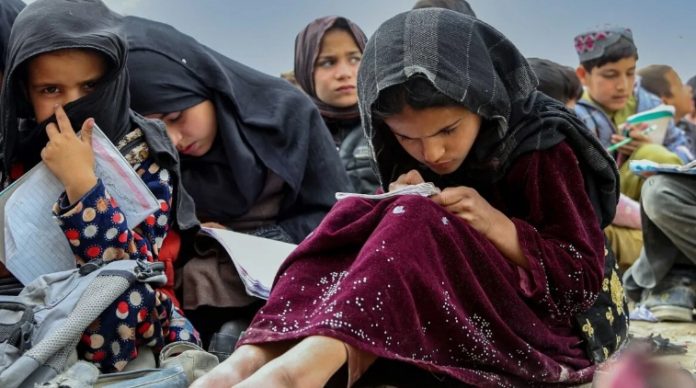A female activist in Afghanistan has spoken out openly against the Taliban’s harsh policies restricting girls’ education in the country and called for strict action against the ban, ANI News reports.
Fatima Amiri, a survivor of the attack on the Kaaj Education Centre and a strong advocate for girls’ education, strongly criticised the suspension of scholarships for Afghan girls. The activist also demanded that alternative education options should be considered rather than prohibitive policies in the country.
At an online conference on girls’ education in Afghanistan, Amiri said there must be a constant struggle against the normalisation of the ban on education. She said that opposition to girls’ education stems from an attitude of gender apartheid that affects decades, not just hundreds or millions.
Amiri studied in an elite class at the Kaaj Education Centre, which was the target of a terrorist attack in September 2022 that killed more than 60 students and seriously injured her. She is currently undergoing treatment in Turkey. Fatima and her classmates took their university entrance exams about a month after the attack, attracting public attention for their university admissions. However, the Taliban barred the girls from continuing their education.
In December that year, Amiri was named one of the BBC’s 100 Important and Inspirational Women, Khaama Press reported. Fatima has repeatedly stated that opening up education opportunities for girls abroad is a priority and online education for girls should also be supported.
She published a post on social media platform X that providing online classes for girls is another option, though not the main one. Nevertheless, efforts should be made to ensure that education does not stop, she said. She wrote:
“The topic of the discussion: Education of Afghan girls! In this emergency, many opportunities should be created for Afghan girls, not unlike many countries that have stopped giving scholarships to Afghan girls because they do not have the right to leave the country without Muharram, they should not suffer from both sides. Another way is to create online courses, which still cannot solve the problem from the root, but efforts should be made not to stop education in general. Don’t let the education of Afghan girls (closing the doors of universities and schools) be normalized.”
More than two years ago, the Taliban banned girls from attending schools beyond the sixth grade in Afghanistan and took no steps to restore girls’ education in the country.
Since the Taliban came to power in Afghanistan, they have issued several decrees imposing restrictions on women. Afghan women have faced many challenges since the Taliban returned to lead Afghanistan in 2021. The female population in the country has no access to education, employment or even public places.
